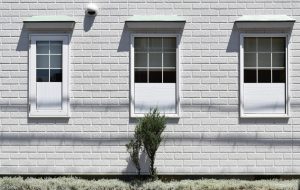Pros and Cons of Buying Fixer Upper Homes
A fixer upper home, also known as a handyman special, is a property that requires renovation or repairs before it is move-in ready. These types of homes can be found at a lower price point and can be an attractive option for individuals looking to save some money or those with a knack for DIY projects. However, like any investment, there are pros and cons to consider before purchasing a fixer upper home. In this article, we will delve into the advantages and disadvantages of buying a fixer upper home to help you make an informed decision.
The Pros
1. Lower Purchase Price
The most obvious advantage of buying a fixer upper home is that it typically comes with a lower price tag compared to move-in ready homes in the same area. This is because the property may require significant repairs or renovations, making it less attractive to buyers who are not willing to put in the extra effort. As a result, you may be able to snag a bargain and save money on your initial purchase.
2. Personalization and Customization
Buying a fixer upper home presents an opportunity to create a space that is tailored to your preferences and needs. With the freedom to make renovations and updates, you can customize the home to fit your lifestyle and design aesthetic. This level of personalization is not always possible with move-in ready homes that may have features that do not align with your preferences.
3. Potential for Profit
If you plan on selling your home in the future, buying a fixer upper can potentially yield a higher return on investment. If you purchase the property at a lower price and make significant improvements, you can increase its value, allowing you to potentially sell it for a higher price. This can be a wise investment strategy for individuals looking to generate passive income.
The Cons
1. Hidden Costs
When considering the purchase of a fixer upper home, it is essential to keep in mind that the renovation and repair costs may be higher than expected. This is because some issues may only be discovered after the sale is finalized, such as plumbing or electrical problems. It is crucial to have a thorough inspection of the property to avoid any surprises down the line.
2. Time and Effort
Tackling a fixer upper home requires a significant amount of time and effort. Not only will you need to manage the renovations and repairs, but you may also need to handle the project management and hiring of contractors. Depending on the extent of the work needed, the process of transforming a fixer upper can take several months or even years to complete.
3. Uncertainty of Return on Investment
While there is potential for profit when buying a fixer upper home, there is also the risk of not recouping your investment. This is especially true if the real estate market takes a downturn, or if you overspend on renovations and are unable to sell the property for a higher price. It is crucial to do your research and have a realistic understanding of the resale value of the property before making a purchase.
Conclusion
Buying a fixer upper home comes with its fair share of pros and cons. Deciding whether or not to invest in a handyman special ultimately depends on your personal goals, budget, and level of commitment. Be sure to carefully consider all factors and potential risks before taking on the challenge of transforming a fixer upper into your dream home.










